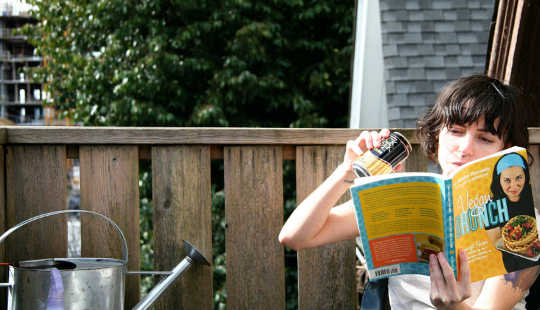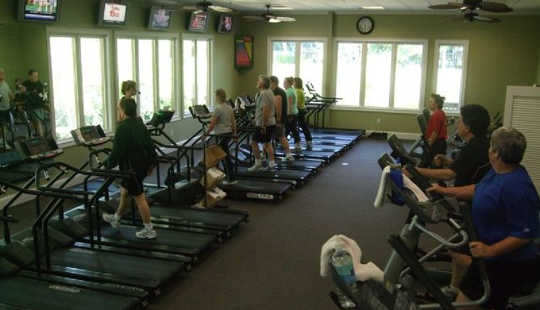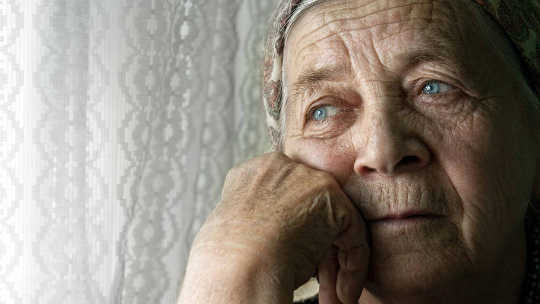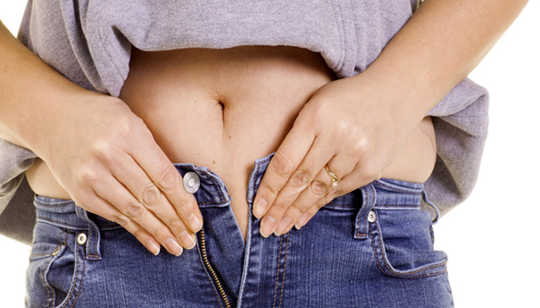 People don’t read diet books just to lose weight. They serve as both “myths and manuals” for a better world, a new analysis of contemporary diet books suggests.
People don’t read diet books just to lose weight. They serve as both “myths and manuals” for a better world, a new analysis of contemporary diet books suggests.
 Sleeping in over the weekend is one of life’s great pleasures. Yet some of us are much better at it than others. A teenager is much more likely to emerge from their bed at midday than their middle-aged parents – but even within age groups, individual differences exist.
Sleeping in over the weekend is one of life’s great pleasures. Yet some of us are much better at it than others. A teenager is much more likely to emerge from their bed at midday than their middle-aged parents – but even within age groups, individual differences exist.
 One in every ten babies in Melbourne develops a food allergy during their first year of life. New research has found children who are born with overly active immune cells are more likely to develop allergies to milk, eggs, peanuts, wheat and other common foods. This finding could lead to future treatments for babies to prevent childhood food allergies.
One in every ten babies in Melbourne develops a food allergy during their first year of life. New research has found children who are born with overly active immune cells are more likely to develop allergies to milk, eggs, peanuts, wheat and other common foods. This finding could lead to future treatments for babies to prevent childhood food allergies.
- By Blake Bauer
 Everything happens for a reason, including health challenges of the mind and body. Although this may be difficult to accept, my view is that we make ourselves sick and miserable looking for love and attention outside ourselves.
Everything happens for a reason, including health challenges of the mind and body. Although this may be difficult to accept, my view is that we make ourselves sick and miserable looking for love and attention outside ourselves.
 The British government’s new guidelines advise reducing alcohol consumption to 14 units a week for both men and women and bluntly state that, for some cancers of the mouth, throat and breast, “risk increases with any amount you drink”
The British government’s new guidelines advise reducing alcohol consumption to 14 units a week for both men and women and bluntly state that, for some cancers of the mouth, throat and breast, “risk increases with any amount you drink”
 Until now, medicine has been a prestigious and often extremely lucrative career choice. But in the near future, will we need as many doctors as we have now? Are we going to see significant medical unemployment in the coming decade?
Until now, medicine has been a prestigious and often extremely lucrative career choice. But in the near future, will we need as many doctors as we have now? Are we going to see significant medical unemployment in the coming decade?
 Scientists are taking a closer look at the main breakdown product of aspirin, called salicylic acid, and its potential to treat neurodegenerative diseases, such as Alzheimer’s and Parkinson’s.
Scientists are taking a closer look at the main breakdown product of aspirin, called salicylic acid, and its potential to treat neurodegenerative diseases, such as Alzheimer’s and Parkinson’s.
 Thanks to rising annual deductibles and a push toward consumer-driven health care, people are increasingly encouraged to shop around for medical care. Many states or state hospital associations have price transparency initiatives, and there are a number of private companies that also purport to help consumers find value for their health care dollar.
Thanks to rising annual deductibles and a push toward consumer-driven health care, people are increasingly encouraged to shop around for medical care. Many states or state hospital associations have price transparency initiatives, and there are a number of private companies that also purport to help consumers find value for their health care dollar.
 Before i was informed that I was “profoundly dyslexic,” I just thought I was stupid and too weird to cultivate friends. In school, I would get an A for creativity over a D for atrocious grammar. I was having considerable difficulty reading anything, much less a map. I had trouble telling my right from my left, I could not comprehend most directions, I was lost much of the time.
Before i was informed that I was “profoundly dyslexic,” I just thought I was stupid and too weird to cultivate friends. In school, I would get an A for creativity over a D for atrocious grammar. I was having considerable difficulty reading anything, much less a map. I had trouble telling my right from my left, I could not comprehend most directions, I was lost much of the time.
 To understand if a new treatment for an illness is really better than older treatments, doctors and researchers look to the best available evidence. Health professionals want a “last word” in evidence to settle questions about what the best modes of treatment are.
To understand if a new treatment for an illness is really better than older treatments, doctors and researchers look to the best available evidence. Health professionals want a “last word” in evidence to settle questions about what the best modes of treatment are.
 With all the noise of society—busy highways, bustling cities, mass media, and television sets blaring everywhere—our minds can’t help but be highly agitated and polluted. I now avoid all this as much as humanly possible, especially the television. It’s now hard to believe that I was a reporter on television for more than two decades.
With all the noise of society—busy highways, bustling cities, mass media, and television sets blaring everywhere—our minds can’t help but be highly agitated and polluted. I now avoid all this as much as humanly possible, especially the television. It’s now hard to believe that I was a reporter on television for more than two decades.
 As a knee surgeon who has helped thousands of patients with knee pain, I know there are treatments and options that can not only reduce the pain, but also postpone knee surgery — or avoid it entirely.
As a knee surgeon who has helped thousands of patients with knee pain, I know there are treatments and options that can not only reduce the pain, but also postpone knee surgery — or avoid it entirely.
 It’s that time of year when many are trying, and some are failing, to live up to their New Years' resolution of losing weight. Many of these probably include resolutions to be more physically active in striving for this goal. But first, there are some common misconceptions about exercise and weight loss that need to be addressed.
It’s that time of year when many are trying, and some are failing, to live up to their New Years' resolution of losing weight. Many of these probably include resolutions to be more physically active in striving for this goal. But first, there are some common misconceptions about exercise and weight loss that need to be addressed.
 Mindfulness, a meditative practice focusing on attention and awareness training, has been shown to have positive effects on mental and physical wellbeing. A recent review of studies has also shown that mindfulness meditation helps people with intellectual disabilities and autism spectrum disorder reduce their mental and physical problems.
Mindfulness, a meditative practice focusing on attention and awareness training, has been shown to have positive effects on mental and physical wellbeing. A recent review of studies has also shown that mindfulness meditation helps people with intellectual disabilities and autism spectrum disorder reduce their mental and physical problems.
 Everyone loves D, the sunshine vitamin. Doctors, patients and the media have been enamoured with vitamin D supplements for decades. As well as their clear benefit in curing severe vitamin D deficiencies, endless headlines hail their magical ability to reduce a vast range of conditions from dementia to cancer.
Everyone loves D, the sunshine vitamin. Doctors, patients and the media have been enamoured with vitamin D supplements for decades. As well as their clear benefit in curing severe vitamin D deficiencies, endless headlines hail their magical ability to reduce a vast range of conditions from dementia to cancer.
 Many dread the approaching winter – the darkness, frigid weather and lower energy levels that blow in along with cold fronts and snowstorms.
Many dread the approaching winter – the darkness, frigid weather and lower energy levels that blow in along with cold fronts and snowstorms.
 Most people are aware of the importance of being active and exercising daily. Unfortunately, due to busy schedules, most people are forced to exercise around other numerous commitments. However, the timing of exercise can have profound effects on performance.
Most people are aware of the importance of being active and exercising daily. Unfortunately, due to busy schedules, most people are forced to exercise around other numerous commitments. However, the timing of exercise can have profound effects on performance.
 It may come as little surprise that taking exercise is a way to lose weight. However, a debate about the best type of exercise for weight loss is likely to divide opinion.
It may come as little surprise that taking exercise is a way to lose weight. However, a debate about the best type of exercise for weight loss is likely to divide opinion.
 When older parents become frail or disabled, it can place a heavy burden on adult children. But the parent-child relationship appears to be a two-way street—with adult children having a profound effect on their parents’ psychological well-being.
When older parents become frail or disabled, it can place a heavy burden on adult children. But the parent-child relationship appears to be a two-way street—with adult children having a profound effect on their parents’ psychological well-being.
 Edible insects are great alternatives to conventional sources of meat as they’re cheap, plentiful and excellent sources of protein and fat, as well as vitamins and minerals.
Edible insects are great alternatives to conventional sources of meat as they’re cheap, plentiful and excellent sources of protein and fat, as well as vitamins and minerals.
 At the time of Xmas parties many of us may be waking up with regrets, sore heads, fragile stomachs and some heartburn (acid reflux) which in a year can affect over 40% of us and one in five weekly.
At the time of Xmas parties many of us may be waking up with regrets, sore heads, fragile stomachs and some heartburn (acid reflux) which in a year can affect over 40% of us and one in five weekly.
 This time of year, most fridges are stocked up with food and drinks to share with family and friends. Let’s not make ourselves and our guests sick by getting things wrong when preparing and serving food.
This time of year, most fridges are stocked up with food and drinks to share with family and friends. Let’s not make ourselves and our guests sick by getting things wrong when preparing and serving food.
 People overeat. And people don’t always make the healthiest food choices. That much is clear. But who is to blame for overeating and poor food choices? And can we do anything about it?
People overeat. And people don’t always make the healthiest food choices. That much is clear. But who is to blame for overeating and poor food choices? And can we do anything about it?
















